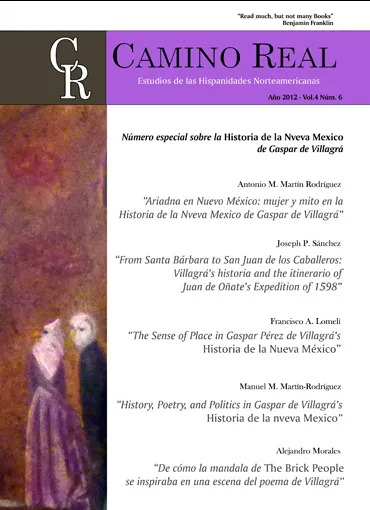
Gaspar de Villagrá’s Historia de la nveva Mexico (1610) has lingered on the margins of U.S. literary history for centuries. Embraced as a source of historical information, the poem was seldom seen as a work of literary merit. In the past four decades, however, critics of Chicano/a literature have paved the way for a reinterpretation of the poem that places Villagrá’s Historia at the onset of Chicano/a letters. But reclaiming the poem means addressing its politics as well. In this article, I analyze the ways in which history, poetry, and politics are intertwined in Villagrá’s Historia in ways that maximize ambiguity, open-endedness, and contradiction.


